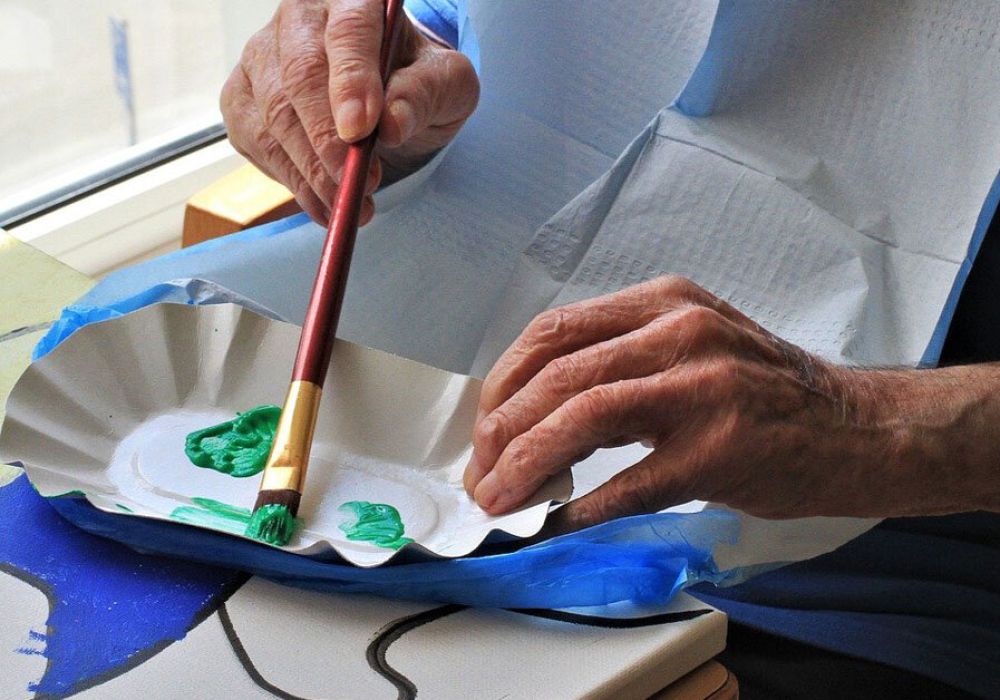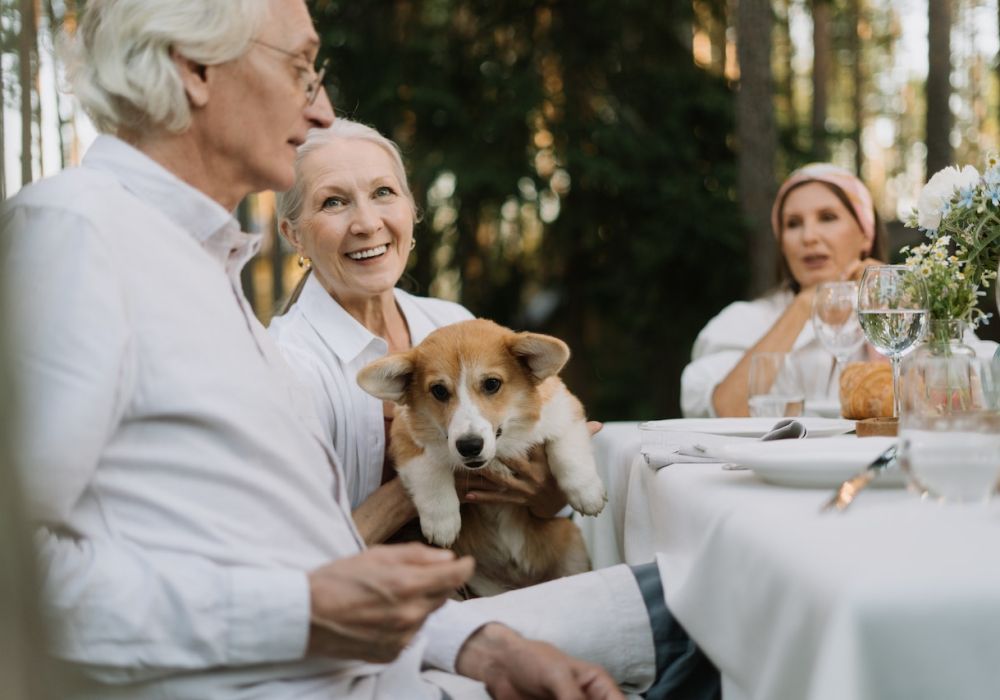Memory Care Activities for Assisted Living Residents

Memory care is a specialized type of care for people with Alzheimer's disease or other forms of dementia. Memory care facilities provide a safe and supportive environment for residents who need assistance with daily activities and cognitive stimulation.
One of the key aspects of memory care is to provide engaging and meaningful activities that can help residents maintain their cognitive abilities, improve their mood, and enhance their quality of life. Activities for memory care residents should be tailored to their individual needs, preferences, and abilities, and should aim to stimulate various aspects of their brain, such as memory, language, attention, and creativity.
In this article, we will share some examples of activities that could be helpful and engaging for memory-impaired individuals living in assisted living/memory care facilities. These activities are not meant to be exhaustive or prescriptive, but rather to provide some ideas and inspiration for caregivers, staff, and family members who want to enrich the lives of their loved ones.
Beneficial “Therapies” for Memory-Impaired Individuals
Music Therapy, reminiscence therapy, art therapy, pet therapy, and sensory stimulation activities are a few beneficial therapy-focused activities persons with cognitive issues, and their caretakers can engage in for the promotion of well-being.
Here is more about each one of these activities:
Music Therapy
Music has a powerful effect on the brain and emotions. Listening to or playing music can stimulate deep emotional recall, especially for songs that are associated with significant events or periods in one's life. Music can also help improve mood, reduce stress, and enhance social interaction.

Music therapy can involve listening to music, singing along, playing instruments, or even composing songs. It's a good idea to play songs from the resident's young adult years, which can help trigger positive memories and emotions. You can also use music as a background for other activities, such as dancing, painting, or storytelling.
Reminiscence Therapy
Reminiscence therapy is a form of therapy that involves recalling and sharing personal stories from one's past. Reminiscence therapy can help residents preserve their sense of identity, boost their self-esteem, and connect with others who share similar experiences.
Reminiscence therapy can be facilitated through the use of photos, music, objects, or prompts from their past. For example, you can show them a photo album of their family or friends, play a song that reminds them of a special occasion, or give them an object that has sentimental value. You can then encourage them to share their memories and feelings associated with these stimuli.
Art Therapy
Art therapy is a form of therapy that uses creative expression as a way of healing and communicating. Art therapy can provide residents with a sense of accomplishment, stimulate various parts of the brain, and offer a non-verbal outlet for emotions.
Art therapy can involve painting, sculpting, drawing, collage making, or any other form of artistic creation. The process of creating art can be calming and therapeutic, and the final product can be displayed or shared with others. You can also use art as a medium for reminiscence or storytelling by asking residents to create something that represents a memory or a person from their past.
Pet Therapy
Pet therapy is a form of therapy that involves interacting with animals. Pet therapy can provide residents with emotional support, joy, companionship, and physical contact. Animals can also help reduce stress, lower blood pressure, and improve mood.

Pet therapy can involve visiting with a therapy dog or cat, or having a facility pet that lives on-site. Residents can pet, cuddle, feed, or play with the animals under supervision. You can also use animals as a stimulus for reminiscence or conversation by asking residents about their own pets or experiences with animals.
Sensory Stimulation Activities
Sensory stimulation activities involve stimulating one or more of the five senses: sight, sound, smell, touch, and taste. These activities can help residents awaken dormant memories, evoke positive responses, and enhance their well-being.
Activities can include:
- Aromatherapy
- Hand massages
- Exploring different textures
- Tasting different flavors
- Listening to soothing sounds
Familiar smells, tastes, or sounds from their past can also be used as a way of triggering memories or emotions.
General activities that can be beneficial for persons with memory impairment
These are some of the everyday activities that we recommend, although they are not specifically designed as therapy. They can help people stay engaged and involved in challenging activities.
Gardening
Gardening involves growing plants, flowers, or vegetables. It can be a rewarding activity that helps residents reduce stress, encourage a sense of achievement, and connect with nature. Gardening can be done in a safe outdoor area, such as a patio, balcony, or courtyard. Residents can:
- Plant seeds
- Water plants
- Weed
- Harvest produce (under supervision)
Asking residents about their favorite plants, flowers, or gardening tips can stimulate memory or conversation.
Cooking/Baking
Cooking or baking involves preparing food or snacks. It can help residents stimulate memory through smell and taste and also build a sense of achievement and satisfaction. Residents can help with measuring, mixing, or decorating ingredients, or follow simple recipes, all under supervision. Asking residents about their favorite foods, recipes, or cooking stories can also provide a way of reminiscing or socializing.
Physical Exercise
Physical exercise involves moving the body and muscles. It can help residents improve their circulation, mood, and overall health. Physical exercise can also help prevent falls, improve balance, and maintain mobility.

Activities can include:
- Walking
- Stretching
- Chair exercises
- Yoga
- Tai chi
- Dancing (combining physical activity with music and social interaction)
Memory Games
Memory games involve testing or improving one's memory or cognitive skills. They can provide residents with cognitive stimulation and a chance for social interaction and fun. Games can include puzzles, memory cards, bingo, crosswords, word searches, or trivia. These games can also be used as a way of reminiscing or learning by using themes or topics that are relevant to the resident's interests or past.
Movie Nights
Movie nights involve watching films or TV shows on a large screen or projector. They can help residents with recall and provide a shared experience for socialization and entertainment. Watching classic films or TV shows from their past that they may remember or enjoy can stimulate memory or conversation.
Reading Groups/Storytelling
Reading groups or storytelling involves reading aloud or listening to stories. They can stimulate memory and provide an opportunity for discussion and interaction. Materials can include books, magazines, newspapers, or poems. Asking residents to share their own stories or write their own poems can also provide a way of reminiscing or creating
Group Outings
Group outings are activities that involve taking residents outside the facility to visit local attractions, parks, or other places of interest. Group outings can provide fresh stimulation and a change of scenery for residents who may feel bored or isolated.

Group outings can involve visiting museums, art galleries, zoos, gardens, theaters, or historical sites. You can also use group outings as a way of stimulating memory or learning by asking residents about their impressions, opinions, or knowledge of the places they visit.
Crafting
Crafting is an activity that involves making things with one's hands, such as knitting, sewing, or making simple crafts. Crafting can help residents improve their motor skills, focus, and provide a sense of achievement and creativity.
Crafting can involve making items such as scarves, hats, blankets, pillows, ornaments, cards, or jewelry. You can also use crafting as a way of reminiscing or personalizing by asking residents to make something for themselves or someone they care about.
Themed Days
Themed days are events that involve celebrating holidays, and seasons, or having days dedicated to specific themes. Themed days can help residents stimulate memories and provide a fun, immersive experience.
Themed days can involve decorating the facility, dressing up in costumes, playing games, listening to music, eating food, or watching movies related to the theme. Some examples of themes are the 1960s, beach day, Halloween, Christmas, Valentine's Day, etc.
Life Skills Activities
Life skills activities are activities that involve performing tasks that are related to daily living. Life skills activities can provide residents with a sense of purpose and normalcy, and often tap into long-held habits and routines.
Life skills activities can include tasks such as folding laundry, setting the table, arranging flowers, sorting mail, dusting furniture, or watering plants. You can also use life skills activities as a way of reminiscing or empowering by asking residents to share their tips or preferences on how to do these tasks.
These are some examples of activities that could be helpful and engaging for memory-impaired individuals living in assisted living/memory care facilities. However, it's important to remember that each resident is unique and has different needs, preferences, and abilities. Therefore, it's crucial to adapt these activities according to the person's level of functioning, interests, and personality.
The goal of these activities is not to cure dementia or restore memory loss but rather to provide residents with opportunities for enjoyment, stimulation, connection, and dignity. By doing so, we can help them live happier and more fulfilling lives.